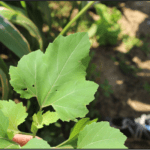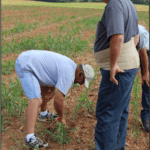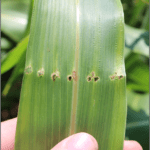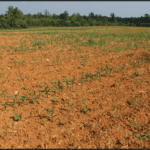By Josh Baker
“As an organic dairy farmer, I have appreciated King’s AgriSeeds’ commitment to excellence in selecting, testing, and providing some of the best seed varieties today, along with much helpful agriculture information.”
-Loyal Martin, Producer in Philadelphia, NY
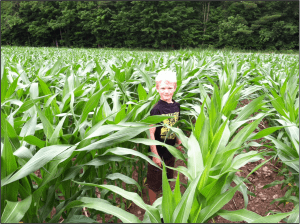
While our current focus is on preparation for the fall, we also should take time to evaluate the our summer crops. NOW is the best time to complete full evaluations and reviews of your current summer crops so that you can begin to think about planning for next year. Keeping an accurate log book of successes and failures of crops will help make your 2015 purchasing decisions much easier. Call your King’s dealer or King’s representative and have them walk fields with you to determine what caused any crop damage and whether or not it can be prevented next year.
For the past few weeks, we have been busy answering calls about issues including stand failures, bug damage, herbicide carryover damage, and many more. The important thing is that we get out in the fields with the producers and talk about what to do with the current crop as well as what to do in the future as preventative measures. In traveling, I have seen that this year rain was extremely spotty and crops in some areas suffered from this while others thrived.
What we can’t do is control the rain. What we can do is diversify our cropping system so that we have an insurance policy. A balanced system of perennials and annuals is consistently the best approach to producing balanced sustainable yields. Forage sorghum is a crop that has emerged as a drought resistant summer annual that thrives in conditions where corn struggles. This, among other considerations may mean the difference in a few tons of overall productivity per acre.
Don’t forget to take notes on the good fields. It does us no good to focus only on the bad, but instead mix in both the successes and failures, write down a synopsis and review when you are making your purchases for 2015.
Scout and take notes on:
